Research Paper: Ayetor, G. K., Nyarko, F. K., & Andoh, P. Y. (2023). Achieving Cost Parity for Battery Electric Vehicles in Africa: a case study of Ghana. Transportation Letters, 1-13.
WHAT THIS PAPER IS ABOUT
- Ghana aims to reduce greenhouse gas emissions by 64 MtCO2 and prevent 2,900 premature deaths.
- Electric vehicle (EV) adoption is currently low in Ghana.
- Total cost of ownership model shows BEVs won’t reach cost parity with ICEVs until the 11th year.
- Waiving the 20% import duty on BEVs only reduces years to parity by one.
- Cost parity with ICEVs achieved in the seventh year by reducing BEV interest rate from 23% to 10%.
- By waiving import duty and lowering interest rate to 10%, cost parity is reached from the first year.
- BEVs in Ghana can significantly reduce CO2, NOx, VOC, SOx, and PM emissions.
- Transition to BEVs could cut CO2 emissions by 5 MtCO2e based on 2016 transportation emissions.
- Recommends special financing scheme with interest rate below 10% for green financing.
- Also recommends removing the 20% import duty on BEVs to achieve cost parity with ICEVs.
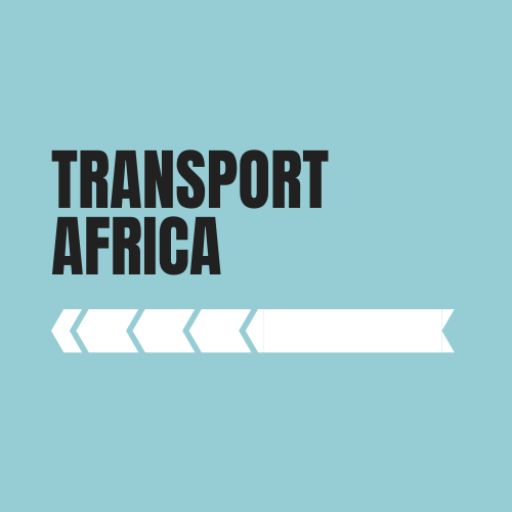
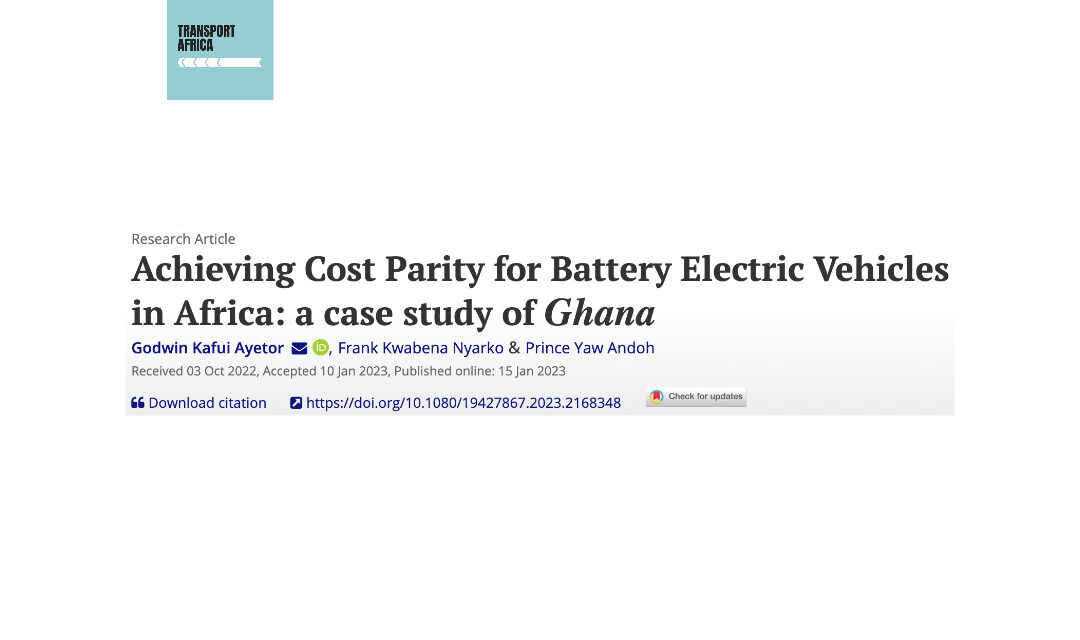
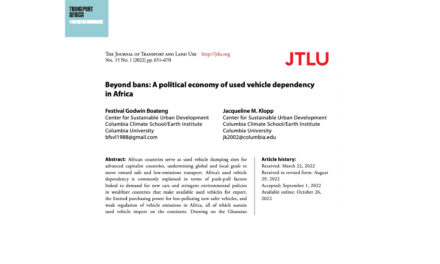
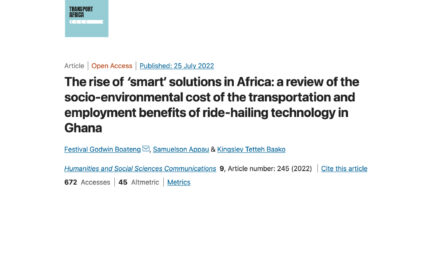
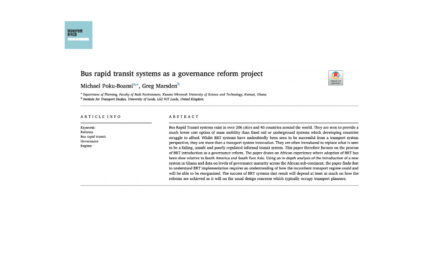
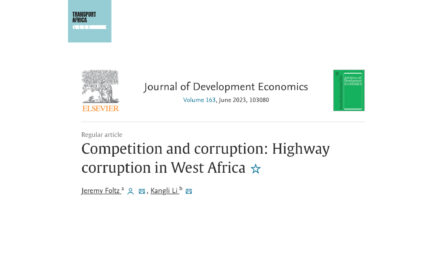
Thanks for another fantastic article. Where else may anyone get that type of information in such a perfect manner of…